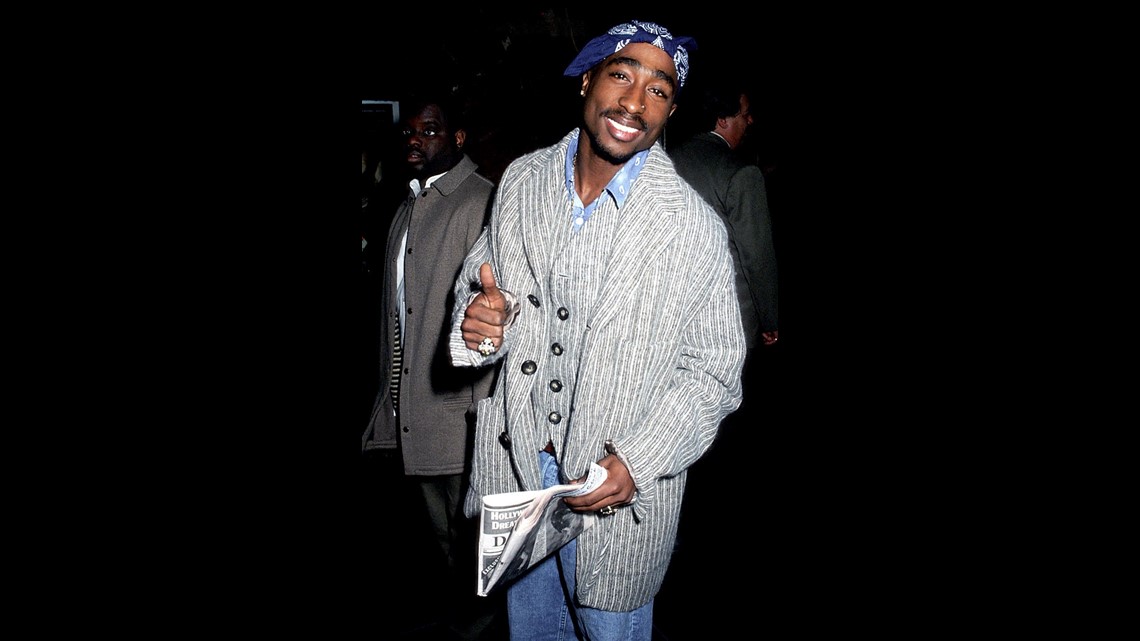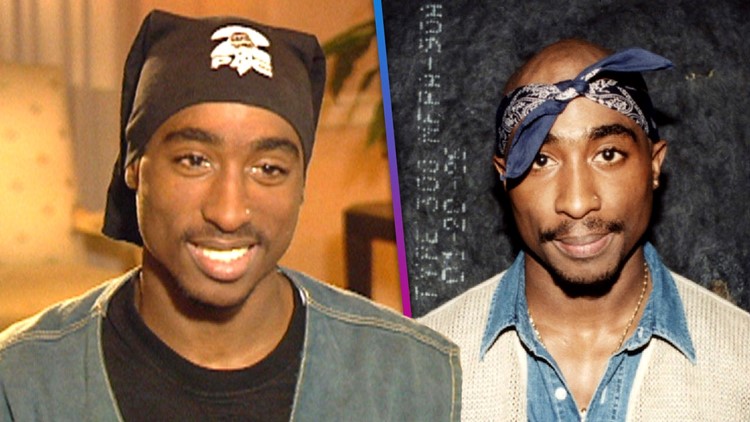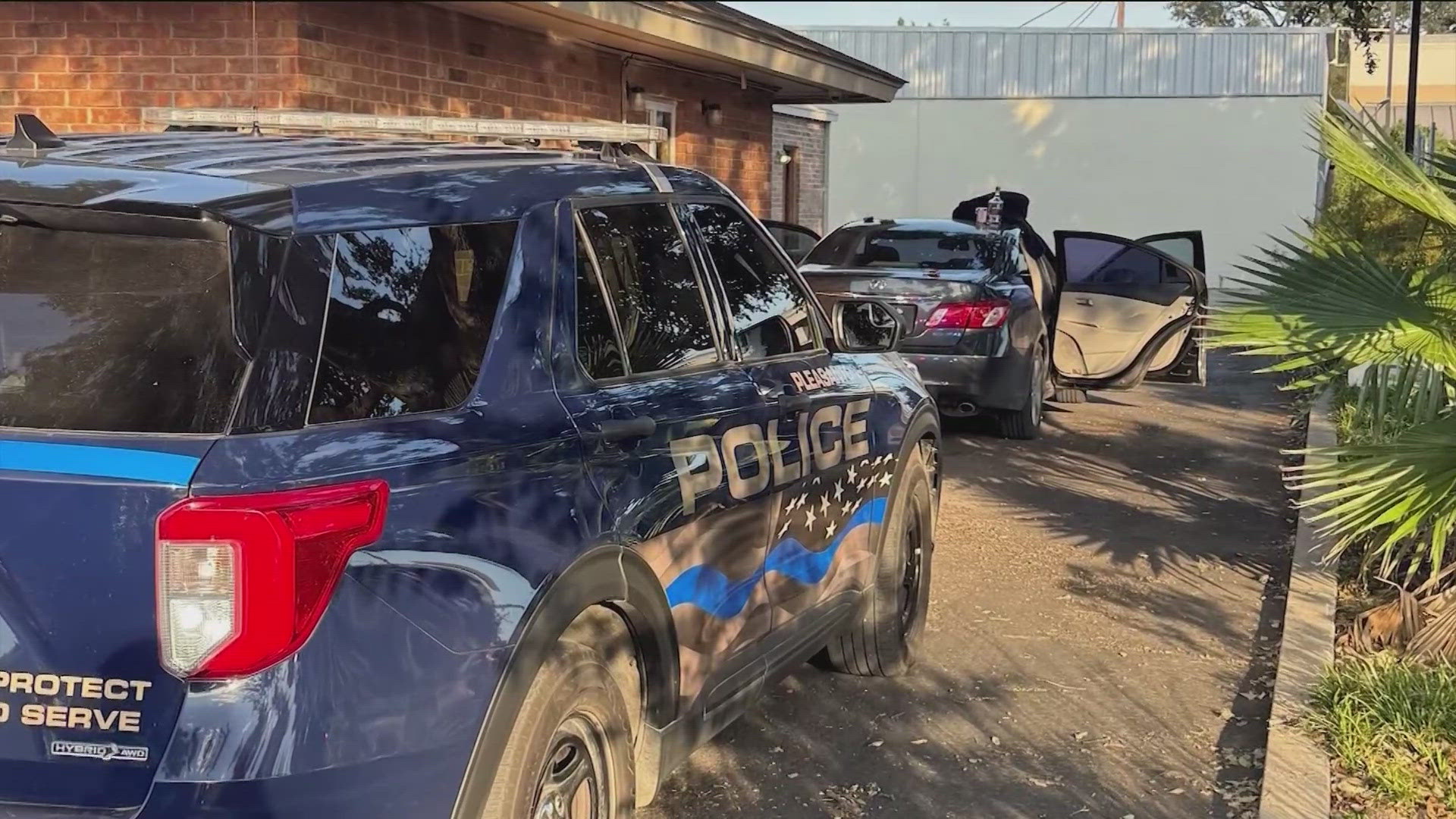Nearly 27 years ago, Tupac Shakur was murdered, meaning he's been gone longer than the 25-year-old was alive. Throughout his life, the rapper's ambitions warred with his personal struggles as his portrayal in the media fought to outshine his rising star onscreen. Since his death, many have tried to encapsulate how his legendary music career and passion for acting influenced hip-hop long after he died. While some are more well-received than others, the latest takes a vastly different approach to explore the late rapper's legacy.
Allen Hughes' Dear Mama -- a five-part series co-produced by Interscope Records and premiering on FX on April 21 -- tells the story of Tupac's life and career through the story of his mother, Afeni Shakur, who oversaw her son's estate until her death in 2016.
Featuring rare footage, previously unheard vocal takes and significant interviews from family members, managers, and peers close within the rapper's circle, the docuseries threads the lives of Tupac and his former Black Panther mother to paint a portrait of the former that more aligns with the man that Hughes knew behind-the-scenes.
In light of the intimate series, ET revisited Tupac's journey from rapper to actor to icon in a series of rare interviews in which he opened up about his desire to be a force in media even as his personal life began playing out in the spotlight for fodder.
"It's important that I just put myself 100 percent, apply myself and represent the young Black male whatever I do," Tupac previously told ET following his role opposite Janet Jackson in John Singleton's Poetic Justice. "More importantly that than you know, let's get something real meaty, more political. I really just want to make myself political by living by my principles and applying myself by today's society."
"Each job I take, I feel like it's different than the last one, each character is different than the last one, each movie is different than the last one. There's no comparison," he shared in another interview. "It gives me a certain amount of freedom and with the music that I do and just in general as a young Black man to have the opportunity to do movies where I can get money and get in a certain spot in white Hollywood. I don't think I have fans, they're like my friends. People that can relate to it, they feel like when they see I'm in a role it's gonna be real. They feel like if Tupac's name is on it, it's gonna be real movie. I'm gonna be real. No matter what, it's going to be real. Authentic."
"You can be one kind of artist and you can be another kind of artist. I want to be an exceptional artist. I wanna be here for the longevity," he later said. "When it's over, I want it to be more than just for the beats and the bass lines. I want it to be for something, i want to stand for something, I don't want to be just a regular statistic. I want to break the molds. And then when I do it, watch everybody do it. Then I'll go back to thugging fully again."


In an interview for the film Gridlock'd, which premiered four months after his death, Tupac jokingly blamed his increasingly dangerous behavior on his zodiac sign, telling ET, "I am the classic case of a Gemini. It means that I'm quiet. I could be calm, quiet, and very into my work, and totally focused and totally disciplined and boring. Or I could be fun, fun, fun, but dangerous, dangerous, dangerous. Not only to other people, but to myself."
The rapper explained that with fame and fortune came a mentality similar to a "kid in a candy store" because all of his experiences are "new."
"[I] got cash, everything you dreamed of, and they've held me back in so many other circumstances that now it's time to go and it's kind of hard to keep [myself] from just pressing the gas down all the way," he went on. "[It's hard] just taking my time and thinking and analyzing situations and trying to think before I do things... But my whole mind state is that if we don't ever go outside of the boundaries, we will never change anything... We'll just keep talking about the people who did it once and told us not to go outside the thing... They're telling me, 'You can't do this. You can only rap and if you rap, you can only rap about this. Then, you can't act. And if you act, you can only do the Black films and you can't be a rapper...' I don't like that. So I try to go outside the boundaries."
He admitted that his methods can be negative and "blows up in my face" but claimed the "Reebok effect" makes it harder to bounce back from those mistakes. "My five mistakes were on the news, you know what I mean? Everybody has five mistakes... I do one thing and it comes out three times," he said. "I can never change how people see me. I can only try to be better at what I do so that when they do blow it up, it doesn't look as bad. I don't know if I've changed, I've just grown. I might still make the same mistakes, but it'll be something different about it because I learn from it every time."
"The only way you can learn is hands on, you know? And sometimes that's shocking and it hurts, but sometimes you put your hand on something good, like money or gold or an album or some good material or a good movie, just from taking that same chance that got you in trouble," he concluded.
Dear Mama premieres April 21 on FX and will be available to stream on Hulu the next day.
RELATED CONTENT:



